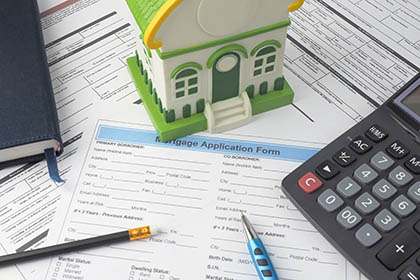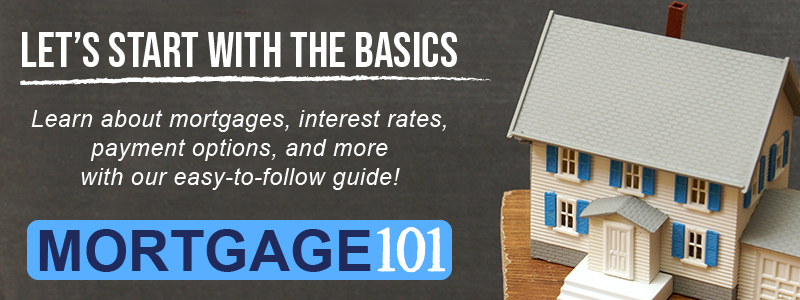
If you’re a first-time homebuyer looking to get your first mortgage, don’t fall prey to these three common mortgage myths.
Mortgage Myth #1: If you have a bad credit score, it’s impossible to get a mortgage.
Fact: While your credit score can affect your ability to get a mortgage, you aren’t out of luck if your credit is less than ideal.
That’s because it isn’t the most important consideration when it comes to whether or not you get a loan. What’s more important is your debt-to-income ratio (DTI).
Your DTI is one of the top factors when it comes to determining if you’ll be approved for a mortgage. Basically, your DTI is exactly what it sounds like: a ratio of how much debt you have compared to your income. Lenders use it to measure your ability to handle a mortgage payment — a higher debt to income ratio indicates that you might struggle to make payments.
But, as we mentioned above, a credit score can affect your ability to get a mortgage. There are a lot of factors that go into mortgage lending, and credit scores do play a role.
For example, if you’re interested in a fixed-rate mortgage, that loan type comes with strict underwriting guidelines. You’ll need to be above a certain credit score that’s essentially set in stone in order to qualify. That’s where a lower credit score may hurt you.
However, you could still qualify for an adjustable-rate mortgage (ARM), which offers more flexibility. Even without a perfect credit score, a lender can take other factors into account when determining whether or not you qualify for the loan.
Learn more about the difference between fixed-rate mortgages and ARMs in our guide, Mortgage 101: A Beginner’s Guide.
This is also a benefit of using a local bank for your mortgage. They are more able and willing to work with customers with less-than-perfect credit scores because they look at the whole picture.
____________________________________________
Related: 6 Tips to Raise Your Credit Score
____________________________________________
Mortgage Myth #2: The best type to get is a 30-year fixed-rate mortgage.
Fact: While a popular choice, the 30-year fixed is not necessarily best for everyone. There are other options out there.
For example, as we discussed above, an ARM might be better for your financial situation than a fixed-rate mortgage. Additionally, one of the benefits of an ARM is that when rates are high, it can be a better option than a fixed-rate as it will likely lower when market rates drop in the years to come.
A 15-year mortgage can also be a good option. Here are some pros to a 15-year mortgage:
- You can pay off your loan faster, meaning you would own it outright before you would with a 30-year mortgage.
- Through paying it off faster, you could also decrease the amount of interest paid.
- It frees up your finances later in life. For example, if you’re planning ahead for your children’s college or your retirement, it’s likely that you won’t have to take your mortgage into account (depending on when you took out the loan, of course).
There are drawbacks to a 15-year versus 30-year term. For example, a 15-year will naturally come with a higher monthly payment. As with any mortgage decision, you should take your personal finances into account and discuss your options with your local bank representative.
Myth #3: You should pay off your mortgage as soon as possible.
Fact: Now, there is some truth to this. Most people want to pay their mortgage off sooner rather than later. It means you’ll own your home outright sooner, and likely be paying less in the long run since you won’t be paying as much interest.
However, a mortgage shouldn’t always be the first thing on your list when you have some extra funds.
For example, if you have debt with a higher interest rate than your mortgage, like credit card debt, it makes more sense to pay that off before you pay extra on your mortgage payment.
Another reason not to pay extra on your mortgage is if your emergency fund is depleted. A good rule of thumb is to have enough in your emergency account to cover 3-6 months of expenses. If your fund is below that, it might be a good idea to build up the reserve before diverting extra income to your mortgage.
In the end, it comes down to your financial situation. There are benefits to paying extra on your mortgage — but it doesn’t hurt to explore other avenues.
Interested in paying off your mortgage sooner? Try these 3 Ways To Pay Off Your Mortgage Faster – And Save Money
More Mortgage Help from Mercer Savings Bank
At Mercer Savings Bank, our goal is to help homebuyers achieve their dreams of homeownership. As a local bank, we can offer our customers personalized advice and flexible options.
If you have questions or would like to apply for a mortgage, feel free to call or contact us. We’re here to help!



